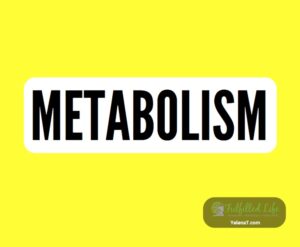PCOS, an intricate hormonal disorder affecting approximately 10% of women of reproductive age globally, encompasses a web of factors including chronic inflammation, disrupted ovarian function, and excessive androgen production.
This multifaceted condition is characterized by hormonal irregularities that give rise to various symptoms, such as reduced sexual hormone production, unwanted hair growth, irregular and painful menstrual cycles, difficulties with fertility, and challenges in managing PCOS. Additionally, PCOS is associated with metabolic complications like insulin resistance, elevated blood sugar, cholesterol imbalances, and high blood pressure. Consequently, it not only diminishes the quality of life but also poses a significant risk for developing diabetes and cardiovascular disease.
The onset of symptoms can be gradual, featuring irregular periods, weight gain, excessive hair growth, acne, and infertility. It’s important to note that not all women with PCOS experience the same symptoms, and their severity can vary.
While the precise cause of PCOS remains elusive, research suggests that genetic and environmental factors contribute to its development. Several environmental elements have been associated with a higher incidence of PCOS, including:
- High Body Mass Index (BMI): Obesity is strongly linked to PCOS, with overweight individuals being more susceptible. Weight loss can help alleviate symptoms.
- Insulin Resistance: Women with PCOS commonly experience insulin resistance, leading to excess androgen production, manifested through symptoms like unwanted hair growth and acne.
- Environmental Toxins: Studies have indicated a potential correlation between exposure to environmental toxins like Bisphenol A (BPA) and phthalates and an increased risk of PCOS.
- Sedentary Lifestyle: Lack of physical activity has been linked to a higher prevalence of PCOS.
- Nutritional Factors: Research suggests that insufficient vitamin D levels and a diet rich in unhealthy fats and processed foods may heighten the risk of developing PCOS.
Exposing the Dangers of Chemicals of Convenience
In our modern world, we’re surrounded by chemicals that seem to be lurking in every corner. These sneaky substances, known as Endocrine Disrupting Chemicals (EDCs), can wreak havoc on our hormonal balance. When it comes to PCOS, certain EDCs have been under the spotlight:
- Bisphenol A (BPA): This pesky chemical hides in plastic containers, food can linings, and thermal receipt paper. It can disrupt your ovarian function, leading to hormonal imbalances and contributing to the development of PCOS.
- Phthalates: These tricky chemicals love to hide in personal care products like lotions, shampoos, and fragrances. They’ve been linked to insulin resistance, weight gain, and hormonal imbalances—common features of PCOS.
- Organochlorine pesticides: You’ll find these ones in the food supply, especially in conventionally grown fruits and vegetables. They can disrupt your ovarian function and mess with your hormone levels, potentially playing a role in PCOS development.
Steps to Eliminate Harmful Chemicals
Now, here’s the exciting part—you have the power to reduce your exposure to these harmful chemicals and reclaim your health. Let’s dive into some practical steps you can take:
- Seek BPA-free alternatives: Look for products labeled as BPA-free, especially when it comes to canned foods. Consider reducing your overall consumption of canned goods or opting for fresh alternatives.
- Limit plastic usage: Be mindful of the plastics you use. Avoid those marked with recycle codes 3 or 7, as they may contain BPA. Switch to glass, porcelain, or stainless-steel containers for hot foods and liquids, and minimize the use of plastic storage containers.
- Choose whole, fresh foods: Opt for fresh, whole foods instead of canned or heavily processed options. This simple switch will not only help you reduce exposure to harmful chemicals but also nourish your body with vital nutrients.
- Embrace detoxification and antioxidants: Support your body’s natural detoxification pathways with roasted dandelion root tea—a fantastic herbal remedy. Consider a liver support formulation that includes milk thistle seed, known for its antioxidant properties.
- Sweat it out: Yes, you read that right! Engaging in physical activity, sauna therapy, and staying well-hydrated can help you sweat out toxins, including BPA. It’s a natural detoxification process that can contribute to your overall well-being.
Your Journey Towards Wellness
As a Board Certified Naturopath, I understand the challenges and frustrations that come with managing PCOS. I’ve witnessed firsthand the impact it can have on your daily life, from the physical discomfort to the emotional toll it takes.
That’s why I’m here to offer you a different approach—a holistic approach that considers your entire well-being. Alongside personalized herbal remedies, lifestyle modifications, and mind-body therapies, we’ll address the environmental factors contributing to your PCOS and work towards creating a healthier, more balanced you.
Through education and resources, I’ll empower you to make informed choices about your diet, exercise routine, stress management, and overall lifestyle. Together, we’ll navigate this complex journey, uncovering the root causes, and embracing natural solutions tailored to your unique needs.
If you’re ready to take charge of your PCOS and embark on a path toward improved health, I invite you to schedule a complimentary consultation with me. Let’s connect, discuss your specific concerns, and explore how we can work together to create a personalized plan that brings you closer to achieving holistic well-being.
Remember, you don’t have to face PCOS alone.
I’m here to support you every step of the way, helping you regain control of your body, your hormones, and your life. Take that first step towards a healthier future—schedule your free consultation today.








